NGO WORK
Food Sovereignty is the only solution and way forward.
Published
3 years agoon
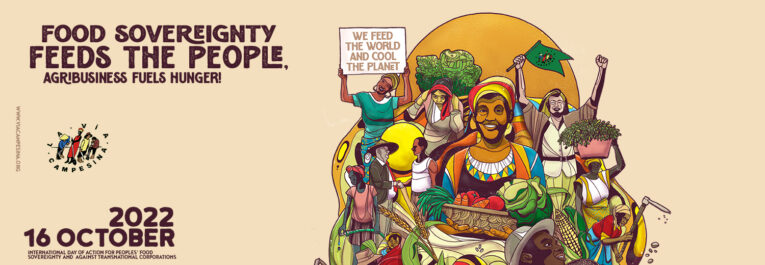
Our fragile world faces an impending global food crisis. The impact of COVID-19 pushed more people into poverty. Lockdowns devastated family livelihoods, the economy, and disrupted supply chains. Globally, according to the Global Report on Food Crises (GRFC 2022), levels of hunger remain as alarmingly high as in 2021, around 193 million people are acutely food insecure and in need of urgent assistance across 53 countries. This acute hunger is driven by conflicts, climatic shocks, the dramatic economic and social fallout from the COVID pandemic and lately by war in Ukraine. Food commodity prices at the start of 2022 were at a 10-year high, and fuel prices at a seven-year high. The current food crisis is about affordability; even in places where food is available its cost is beyond the reach for millions of people while rising prices deepen the challenges for those barely able to pay for food in normal times.
The food crisis at the moment is unique because it is unfolding amid a more difficult global context than with the food and fuel crises of 2008. The intensity and frequency of climatic shocks have more than doubled compared with the first decade of this century. About 1.7 billion people were affected by climate-related disasters, almost 90 per cent of them became climate refugees in last 10 years. Hunger, malnutrition and poverty are harder to overcome because of on-going wars, conflicts and natural disasters. These disrupts all aspects of a food system, from the harvesting, processing and transport of food to its sale, availability and consumption.
But ending hunger isn’t only about supply. Enough food is produced today to feed everyone on the planet. The problem is access and availability of nutritious food, which is increasingly impeded by multiple challenges including the COVID-19 pandemic, conflict, climate change, inequality, rising prices and international tensions.
As the shift from multilateralism to multi-stakeholderism proliferates across UN platforms, corporations have continued to gain control of the narratives for change. Corporate power in food and agriculture systems has continued to grow too, and financialization is converting food and land into objects of speculation. The recent UNFSS process is a clear example of this tendency. The failure of the neoliberal policies and industrial agriculture (including GMOs) in increasing yields and profits led to the concentration of corporate power in few transnational corporations (TNCs) which are controlling Big Data, agricultural land, ocean resources, seeds and agrochemicals, and aim to increasingly dominate our food systems and appropriate the 80% of the food produced by Family Farmers. Financialization led to an unprecedented market concentration to enhance new investments in Research and Development (R&D and (bio)technologies, with the aim to extend the frontiers of capitalism to capture all the world biodiversity.
World-wide, there is a trend towards shrinking space for civil society and reduced ambition for defending human rights. The activists at the local level are more and more vulnerable to human rights violation, oppression, and criminalization. The physical violence of state-sponsored repression using security and military forces have targeted individuals and embattled masses of peaceful protesters around the world. On the other hand, the primacy and legitimacy of the public sector is increasingly threatened by corporate capture of policy processes and a development narrative that assigns a lead role to private sector investment, while multilateralism is under attack from virulently populist nationalism and corporate-promoted multi-stakeholderism.
In the past three decades there has been a growth of an increasingly robust, diversified and articulated network of small-scale food producers, workers and other social actors ill-served by the corporate-led globalized food system who advocate for a radical transformation of food and agricultural systems based on food sovereignty. These movements have been resolutely engaged in defending and building ecologically and socially sustainable, and territorially embedded food provisioning arrangements that tend to be termed ‘alternative,’ although they are responsible for up to 70% of the food consumed in the world. Rethinking agriculture policies as a matter of economic and national security must be a priority.
The food sovereignty movement has been a dynamic part of the articulation of transformation and solutions since 1990s, through the landmark Nyéléni Food Sovereignty forum in 2007 and agroecology forum in 2015. 25 years after the creation of the concept of Food Sovereignty, our movements join their voices to call for systemic change to open the path for a future of hope.
We demand immediate action to:
- End of speculation on food and the suspension of trading food products on stock markets. The price of food traded internationally should be linked with the costs of production and follow the principles of fair trade, both for producers and for consumers;
- End of the WTO’s control of food trade and keep food production out of free trade agreements. Countries should have public food stockpiles, and regulate the market and prices, so that they can support small-scale food producers in this challenging context;
- Create a new international body to conduct transparent negotiations on commodity agreements between exporting and importing countries so that countries which have become dependent on food imports can have access to food at an accessible price;
- Forbid the use of agricultural products to produce agrofuel or energy. Food should be an absolute priority over fuel.
- Bring a global moratorium on the payment of the public debt by the most vulnerable countries. Pressuring such countries to pay the debt is highly irresponsible and leads to socio, economic, and food crises.
We demand radical changes in international, regional and national policies to re-build food sovereignty through:
- A radical change in international trade order. WTO should be dismantled. A new global framework for trade and agriculture, based on food sovereignty, should open the way for strengthening local and national peasant agriculture, to ensure a stable basis for a re-localized food production, the support for local and national peasant-led markets, as well as to provide a fair international trading system based on cooperation and solidarity;
- The implementation of popular and integral Agrarian Reform, to stop the grabbing by TNCs of water, seeds and land, and ensure small-scale producers fair rights over productive resources. We protest against the privatization and grabbing of territories and commons by corporate interests under the pretext of nature protection, through carbon markets or other biodiversity off-sets programs, without consideration to the people who are living on these territories and who have been taking care of the commons for generations;
- A radical shift towards agroecology to produce healthy food for the world. We must face the challenge of producing enough quality food while reviving biodiversity and drastically reducing GHG emissions.
- Effective input market regulation (such as credits, fertilizers, pesticides, seeds, fuel) to support peasants’ capacity to produce food, but also to ensure a fair and well-planned transition toward more agroecological farming practices;
- A food governance based on the people, not on TNCs. The capture of food governance by TNCs should be stopped, and people’s interests should be put at the center. Small producers should be given a vital role in all bodies dealing with food governance;
- The transformation of the UN Declaration on the Rights of Peasants into a legally binding instrument for the defense of rural peoples.
- The development in every country of public stockpiling capacities. The strategy of food stockpiling should be held both at the national level but also through the creation and public support to food reserves at the community level, with locally produced food coming from agroecological farming practices;
- A global moratorium on dangerous technologies that threatens humanity, such as geoengineering, GMOs or cellular meat. The promotion of low-cost techniques that increase peasant autonomy and of peasant’s seeds;
- The development of public policies to ensure new relationships between those who produce food and those who consume, those who live in rural areas and those who live in urban areas, guaranteeing fair prices defined based on the cost of production, allowing a decent income for all those who produce in the countryside and a fair access to healthy food for the consumers;
- The promotion of new gender relations based on equality and respect, both for people living in the countryside and among the urban working class. The violence against women must stop now.
Source: viacampesina.org
Related posts:
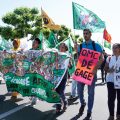
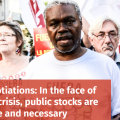 WTO negotiations: In the face of the food crisis, public stocks are legitimate and necessary
WTO negotiations: In the face of the food crisis, public stocks are legitimate and necessary
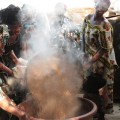 Food sovereignty is Africa’s only solution to climate chaos
Food sovereignty is Africa’s only solution to climate chaos
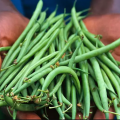 Food Sovereignty: A Manifesto for the Future of Our Planet
Food Sovereignty: A Manifesto for the Future of Our Planet
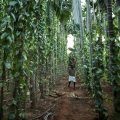 UN Food Systems Summit: The Battle Over Global Food and Agriculture Governance
UN Food Systems Summit: The Battle Over Global Food and Agriculture Governance
You may like
NGO WORK
Failed US-Brokered “Peace” Deal Was Never About Peace in DRC
Published
2 weeks agoon
October 22, 2025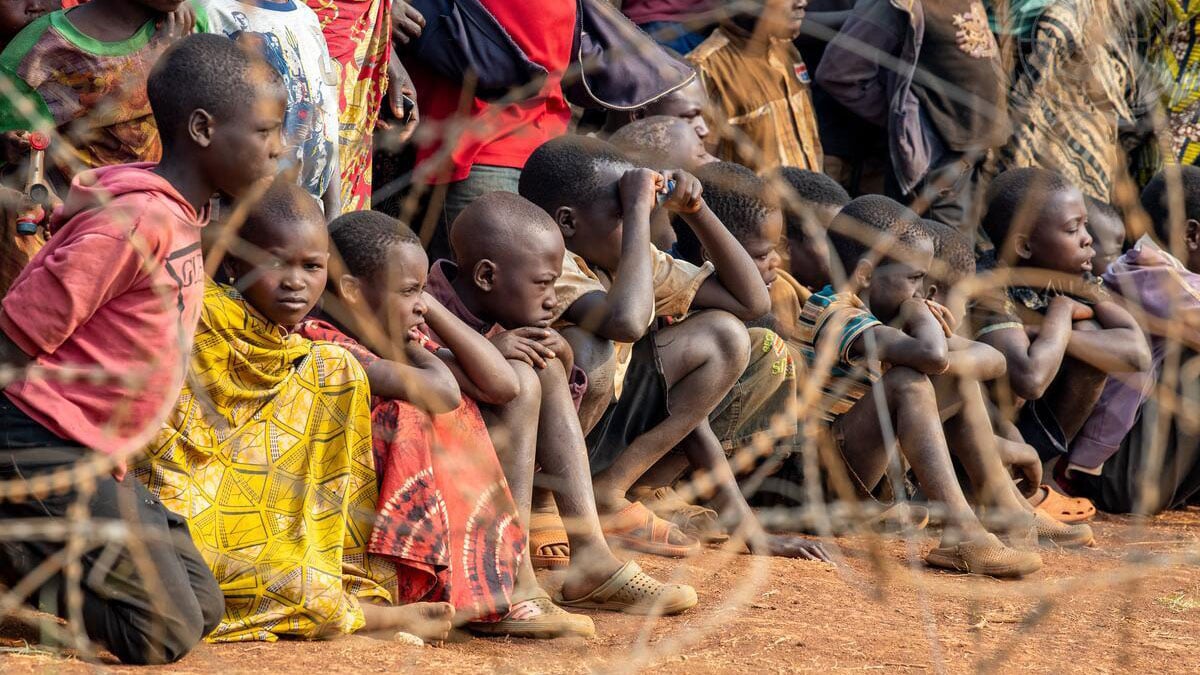
Oakland, CA – Whereas Donald Trump hailed the “peace” agreement between Rwanda and DRC as marking the end of a deadly three-decade war, a new report from the Oakland Institute, Shafted: The Scramble for Critical Minerals in the DRC, exposes it as the latest US maneuver to control Congolese critical minerals.
“US involvement in Congolese affairs has always been unequivocally tied to the goal of securing access to critical minerals,” said Frédéric Mousseau, report co-author and Policy Director at the Oakland Institute. “The ‘peace’ deal comes after decades of US training, advising and sponsoring foreign armies and rebel movements, and at a time when Rwanda and its proxy M23 have expanded territorial control in eastern DRC. This is a win-lose deal that serves US mining interests and rewards Rwanda for decades of pillaging Congolese resources.”
The report’s analysis of previously overlooked coltan trade data shows that the US has been a central actor in laundering illegally smuggled Congolese minerals. Rwanda’s overall tantalum (metallic ore extracted from coltan) exports to the US increased 15-fold between 2013 and 2018. This was after the first M23 invasion in 2012 and at the time when the US administration waived its sanction mechanism against Rwanda. At its peak, over half of US imports of tantalum originated from Rwanda, despite the country’s limited production. Shafted: The Scramble for Critical Minerals in the DRC details how the regional economic integration at the center of the “peace” agreement will legalize this laundering.
“With the world’s largest reserves of critical minerals, the Congolese will continue to bear the social and environmental costs of extraction, while Rwanda reaps the benefits from processing and exporting its neighbor’s resources,” said Andy Currier, report co-author and Policy Analyst at the Oakland Institute. “The deception is even more obvious knowing that Rwanda’s Minister of State for Regional Integration is none other than James Kabarebe – sanctioned by the US Treasury in early 2025 for orchestrating Rwanda’s support for the M23, coordinating the export of minerals from the DRC, and managing the revenue generated by this extraction,” Currier continued.
The report shows that the regional integration negotiated by the US is actually about building two separate export routes for Congolese minerals. One that establishes Rwanda as a hub for minerals extracted in the conflict areas of eastern DRC and another that upgrades the Lobito Corridor, a key export route to the Atlantic Ocean for copper and cobalt mined in the south of the country – financed through a US$553 million loan to Angola by the US Development Finance Corporation (DFC).
Several mining deals along these two routes are already being negotiated by a number of US firms – backed by high-profile billionaires like Bill Gates, close Trump associates, and US military and intelligence figures. “True peace and prosperity will only come when the Congolese – not foreign powers – set the terms of the country’s future,” said Maurice Carney, Executive Director of Friends of the Congo. “Under the US-brokered ‘peace,’ the suffering of the Congolese people persists and a new era of exploitation unfolds.”
With over 1,000 civilians killed in the months since the “peace” deal was signed, Shafted proves that Congolese civil society’s concerns are well founded. American involvement has little to do with ending violence, and everything to do with unlocking strategic mining access for corporate interests. The agreement effectively rewards aggression while sidelining essential conditions for durable peace: Accountability of the perpetrators and their enablers, justice for the victims, and sovereignty of the Congolese people.
Source: oaklandinstitute.org
Related posts:

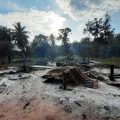 Amidst Failed US Sanctions, the Indigenous Pay the Price for Nicaragua’s Gold Rush
Amidst Failed US Sanctions, the Indigenous Pay the Price for Nicaragua’s Gold Rush
 How the EU-Mercosur trade deal is worsening the international climate crisis
How the EU-Mercosur trade deal is worsening the international climate crisis
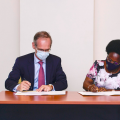 Uganda, Total sign crude oil pipeline deal
Uganda, Total sign crude oil pipeline deal
 Under Guise of Climate Action, the World Bank Launches Fresh Offensive on Land Rights
Under Guise of Climate Action, the World Bank Launches Fresh Offensive on Land Rights
NGO WORK
Documenting killings and disappearances of land and environmental defenders
Published
3 weeks agoon
October 9, 2025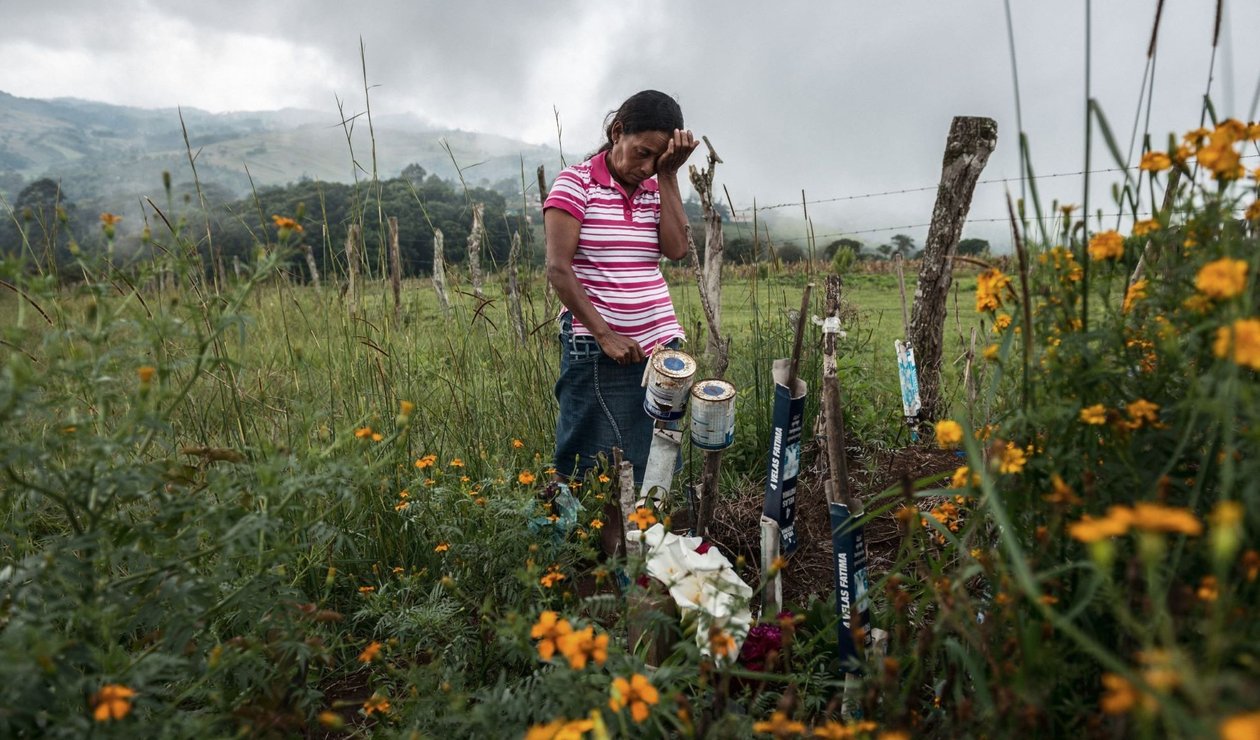
Julia Francisco Martínez stands at the graveside of her husband Juan, a Honduran Indigenous defender who was found murdered in 2015. Giles Clarke / Global Witness
Every year, Global Witness works with partners to gather evidence, verify and document every time a land and environmental defender is killed or disappeared. Our methodology follows robust criteria, yet undocumented cases pose challenges when it comes to analysing data
Global Witness documents killings and long-term disappearances of land and environmental defenders globally. In partnership with over 30 local, national and regional organisations in more than 20 countries, we produce an annual report containing these figures, and we have done so since 2012.
Our methodology involves a year-long process of cross-referencing data from different sources to ensure its credibility. Over 2,200 killings or long-term disappearances of defenders appear in our database since 2012 – with 146 cases documented in 2024.
Every year, we maintain a database to keep a record of these crimes and create a comprehensive global picture of the systematic violence defenders face.
The data provides a snapshot of the underlying drivers behind reprisals and indicates how some defenders and their communities face increased risks. Exposing these trends is the first of many steps to ensure that defenders and their communities are protected and can exercise their rights without fearing for their lives.
Killings and disappearances documented between 2012 and 2024
-
2,253
defenders have been killed or disappeared since 2012
Global Witness
-
146
of these attacks occurred in 2024
Global Witness
Classifying defenders’ cases
Most of the cases recorded in our database are killings – including assassinations by illicit actors, state murder and death in detention.
Our database also includes disappearances of defenders, where the individual has been missing for six months or more.
All reports prior to 2025 have combined killings and long-term disappearances into one single headline figure. For greater clarity, our latest report indicates a distinction between these two types of attack, and our reports will continue to make this distinction in future.
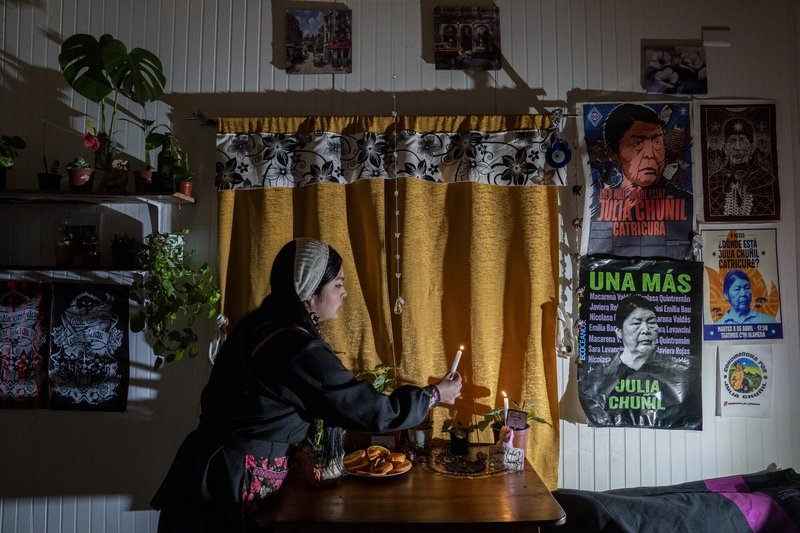
Lissette Chuñil makes a offering to honour her grandmother – a Mapuche woman and president of the Indigenous community of Máfil, who was disappeared in November 2024. Tamara Merino / Global Witness
Cases from prior years or those already included in our database are not continuously monitored. Where we receive updated information on an attack, we may retrospectively include or remove cases.
We document the killing or disappearance of a defender when there is a reasonable and suspected link to an individual’s activism or where the individual played a role in defence of the land or the environment.
As well as individuals directly involved in activism, we also document tangential violence against families, community members or others caught up in attacks.
Our definition covers a broad range of people and encompasses different types of land and environmental leadership. Crucially, this involves people who work in any capacity to protect rights linked to the exploitation of land or the environment.
How we define land and environmental defenders
Land and environmental defenders are a specific type of human rights defender – individuals or groups of people who act to promote, protect or strive for the realisation of human rights through peaceful action.
Their role as human rights protectors is recognised by the UN Declaration on Human Rights Defenders, principles also enshrined in other legally binding international instruments. This includes those working to protect human rights relating to the environment, including water, air, land, flora and fauna.
We define defenders as people who take peaceful action against the unjust, discriminatory, corrupt or damaging exploitation of natural resources or the environment.
Land and environmental struggles take different forms and are shaped by local contexts. For example, in every region of the world, communities strive against systematic land dispossession and environmental destruction from extractive industries.
For some the threat to territories is intimately connected to the degeneration of their sovereignty, culture, livelihoods and homes. Others are caught in wider conflicts which exacerbate land, environmental and climate injustices.
Defenders often live in communities whose land, health and livelihoods are threatened by the operations of mining, logging, agribusiness or other industries.
Some defend our biodiverse environment, while others support such efforts through their roles as lawyers, politicians, park rangers, journalists, or members of campaigns or civil society organisations.
Others are holders of traditional or Indigenous knowledge, working as Indigenous guards or community knowledge keepers.
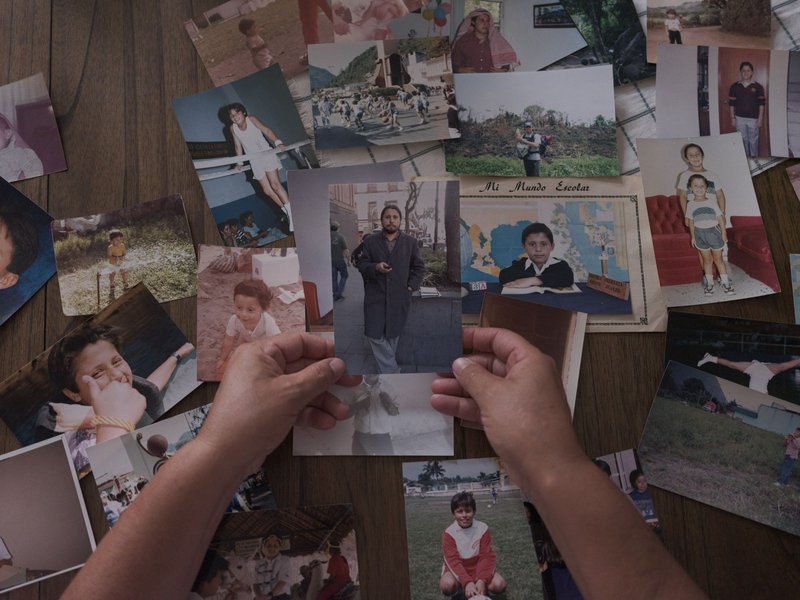
Family members sift through photographs of Ricardo Arturo Lagunes Gasca, a human rights lawyer who disappeared with Indigenous leader Antonio Díaz Valencia after attending a community meeting in San Miguel de Aquila, Mexico. Luis Rojas / Global Witness
Identifying and documenting cases
We learn of killings and disappearances through reliable sources of online reporting, tip-offs and wider documentation efforts from civil society organisations.
We set up search engine alerts using keywords and conduct other searches online to identify relevant cases. We also share information with international and national organisations who report on attacks against human rights defenders.
We then research each case to assess whether the person killed or disappeared was a land and environmental defender, according to our definition.
Desk-based research has its limitations. Many attacks on land and environmental defenders receive little or no media attention, due to the remote location of attacks, stigmatisation by investigating authorities, or widespread government repression of the media.
In most instances, we supplement identified cases with additional research. This includes working closely to share information with trusted civil society organisations and communities who have gathered evidence through their own investigations.
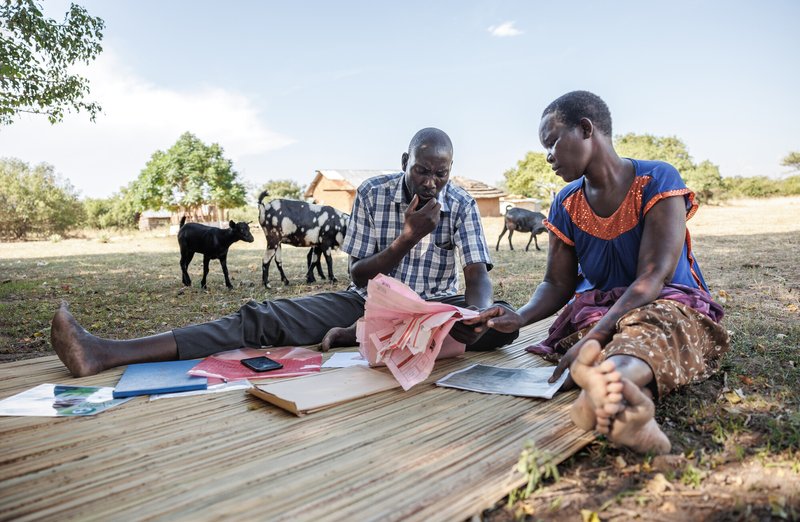
Communities affected by the East African Oil Pipeline report receiving threats after refusing to leave their homes without adequate compensation. Jjumba Martin / Global Witness
Verifying information
We work closely with in-country partners to verify whether there is a reasonable and suspected link between the killing or disappearance and the person’s activism.
Testimony from families, communities and organisations working with targeted defenders often provides key information. Sometimes we review official documentation, including police reports or legal documents. This information is documented by Global Witness and not made public.
Navigating toxic narratives
Year after year, we are confronted with cases where the very nature of what it means to be a land and environmental defender is questioned.
Often governments, corporations and media outlets propagate a narrow view of land and environmental activism, excluding individuals and communities whose role defending land or environmental rights is less recognisable.
Across the world, defenders and their communities are often labelled as “criminals”, “agitators” or “communists”. These toxic terms are sometimes employed by the institutions and authorities that claim to uphold people’s rights.
Media can often repeat damaging narratives or even simply ignore reporting on these cases, making it difficult to verify whether an attack could be linked to a persons’ activism.
In these situations, we work closely with local organisations to clarify the contexts in which defenders work, and the patterns of stigmatisation they face, and gather more evidence of the role they played in environmental and land rights protection.
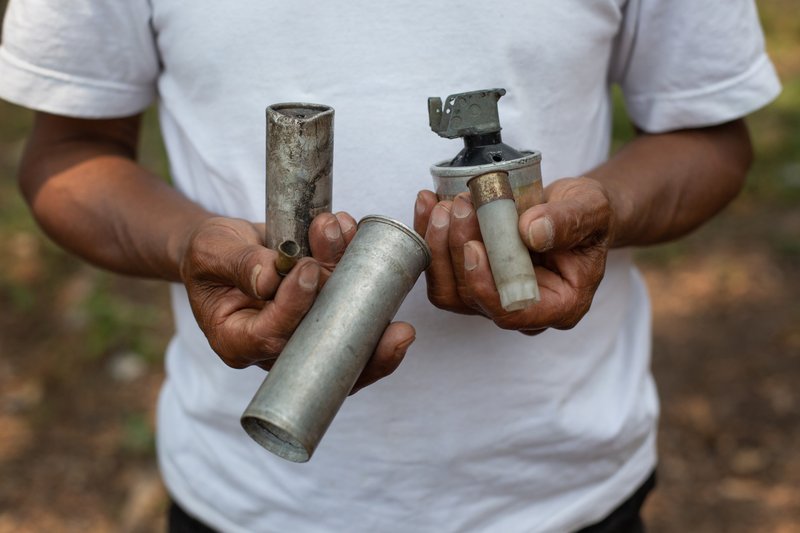
An Indigenous activist holds smoke bombs, tear gas canisters and other projectiles used by Guatemalan state authorities to prevent peaceful protest against a hydro-electric project. James Rodriguez / Global Witness
We also work alongside other organisations gathering national, regional and international reprisal-related data. This includes official UN sources of data collection as well as civil society initiatives.
Every data collection project has its own definitions and methodologies, which create challenges in collating this data into a global dataset on attacks against defenders. Some existing datasets overlap with ours, but often do not fully coincide.
For every case documented, we research and evaluate whether it fits our definition of a land and environmental defender.
Often, public reporting on attacks is circumstantial or lacks information. In some cases, attacks go unreported, particularly in rural areas and in certain countries.
In these cases, countries with restricted civic space – where civil society organisations, NGOs and other groups that monitor the work of defenders are less present, for example – are not able to fill the reporting gap.
This is further exacerbated by repression of the media, authoritarian governments and active political conflicts. Documenting massacres or reprisals in active conflict zones, areas under occupation or where organised crime groups have social or territorial control is also challenging.
These contextual challenges mean that our data is likely to underreport killings and disappearances in certain countries and regions of the world – particularly in areas of Asia, Africa and the Middle East.
Spotlighting our criteria
To meet our criteria, a case must be supported by the following available information:
- Credible sources of information. This can include online publications, official documentation on a case or collating information from families, colleagues and civil society organisations linked to a case.
- Details about the type of act and method of violence, including the date and location.
- Name and biographical information about the victim.
- Clear, proximate and documented connections to the protection and defence of environmental and land rights. This includes evaluating the various roles of defenders play and the wider contexts and underlying conflicts that affect them.
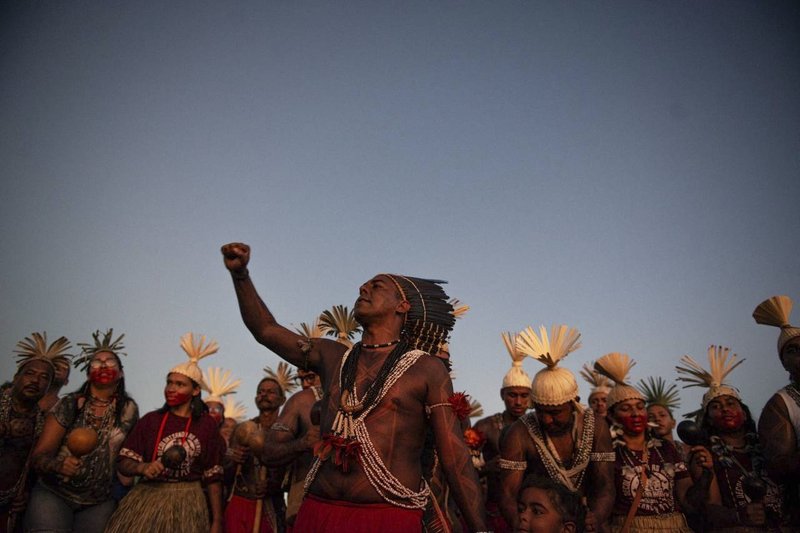
Many of the defenders working to protect land and environment also speak out against the harmful impacts of the climate crisis either because of the direct impact on their livelihoods and communities or in their role as lawyers, journalists or members of civil society organisations. Matheus Alves / Sumauma / Global Witness
Analysing the data
We seek to understand the most dangerous repercussions defenders face in the context of the territorial and environmental disputes taking place in their countries.
We also look to understand the characteristics of defenders and their communities – who they are as people and whether some face greater, more targeted risks.
Focusing on the most serious harms (killings and disappearances) enables us to confidently verify the threats defenders face and allows us to analyse geographical trends at regional, country and local level – though with recognised limitations.
We record whether a defender belongs to a marginalised group – Indigenous Peoples, Afro-descendants or rural communities – or if they act as a defender in their role as lawyers, journalists or members of civil society organisations. This enables us to understand more about the characteristics of defenders working to protect land and the environment.
We try to gather information on the rights defenders are striving to protect, such as whether they are engaged in a territorial dispute or preventing environmental damage.
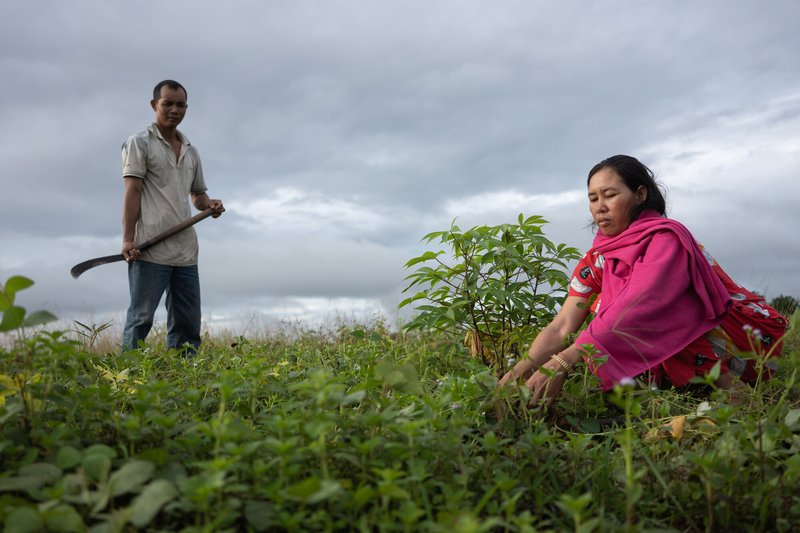
Violence is often connected to wider territorial disputes linked to the expansion of extractive projects, devastating the homes and livelihoods of families and communities. Andrew Ball / Panos / Global Witness
We also aim to identify the underlying driver of the harms that led to their acts of protest – for instance, land disputes or industries linked to destructive practices or rights infringements.
Where possible, we record the alleged perpetrator of the crime – both the direct offender and the suspected intellectual authors.
Our dataset is reviewed and updated annually. Before we publish our data, documented cases from the previous year go through a rigorous fact-checking process to ensure confidence in the veracity of our data.
We do not proactively review historic cases in our database. If there are changes in the status of a case or if more information about an individual defender comes to light, we revise and amend our database accordingly.
In the weeks before the publication of our Annual Defenders Report, we temporarily halt the inclusion of new cases – any new cases or information received are kept on file and later added to the database.
Despite efforts to overcome the data access and verification challenges outlined above, our data is likely incomplete. The figures presented in Global Witness reports are therefore probably an underestimate and should be considered as only a partial picture of the extent of killings and disappearances of land and environmental defenders.
Read full article: globalwitness.org
Related posts:

 Human rights defenders show remarkable courage in the face of attacks and killings – new report
Human rights defenders show remarkable courage in the face of attacks and killings – new report
 #COP27: HUMAN RIGHTS ADVOCATES URGE PARTIES TO INCREASE RECOGNITION AND PROTECTION OF ENVIRONMENTAL AND LAND DEFENDERS.
#COP27: HUMAN RIGHTS ADVOCATES URGE PARTIES TO INCREASE RECOGNITION AND PROTECTION OF ENVIRONMENTAL AND LAND DEFENDERS.
 Toxic platforms, broken planet: How online abuse of land and environmental defenders harms climate action
Toxic platforms, broken planet: How online abuse of land and environmental defenders harms climate action
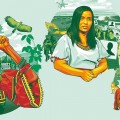 Defending tomorrow: The climate crisis and threats against land and environmental defenders
Defending tomorrow: The climate crisis and threats against land and environmental defenders
NGO WORK
The Oakland Institute Calls on the Tanzanian Presidential Land Commissions to Respect & Ensure Rights of Maasai Living in the Ngorongoro Conservation Area
Published
4 weeks agoon
October 7, 2025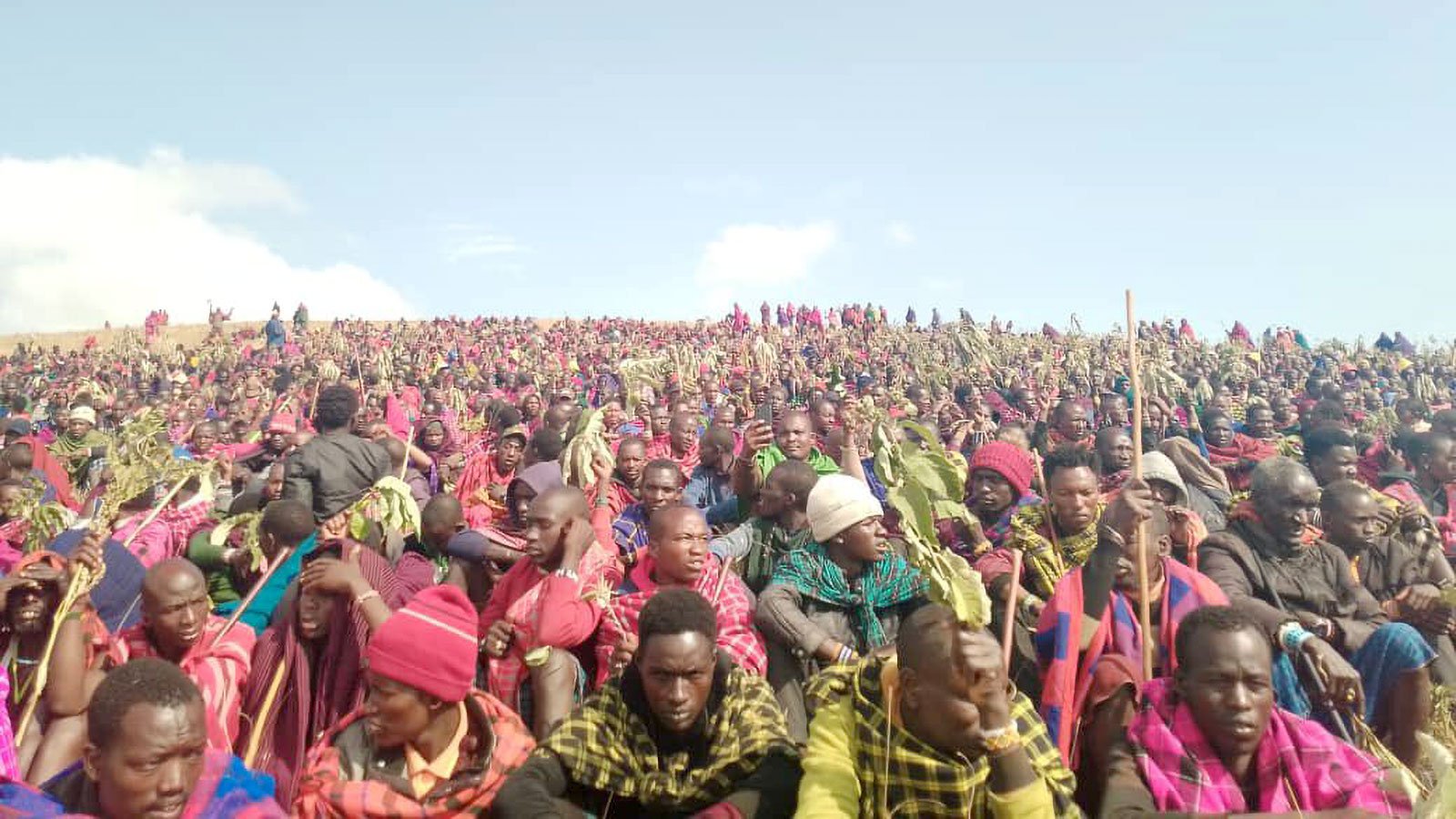
Following the one-year anniversary of the historic protest waged by Maasai communities in the Ngorongoro Conservation Area (NCA), the Oakland Institute calls on the Tanzanian government to respect their rights to land and life and end mass eviction plans.
Between August 18-23, 2024, over 40,000 Maasai staged a historic mobilization, blocking the Ngorongoro-Serengeti highway and stranding safari tourist land cruisers – forcing the world’s attention to their demand for justice. The protest challenged the Tanzanian government’s attempt to drive the Maasai from the NCA without their consent by stripping them of their land and voting rights. President Samia Suluhu Hassan’s blind pursuit of tourism dollars has resulted in denial of essential services – including life-saving healthcare and education – to approximately 100,000 Maasai, while their pastoralist livelihoods are strangled.
To appease the international outcry generated by the protests, the Tanzanian government launched the “Presidential Commission on Land in Ngorongoro” and the “Presidential Commission on Relocation from Ngorongoro,” on February 20, 2025. The commissions were granted a three-month mandate to assess land conflicts and the relocation of residents with the expectation that the findings will be released at regular intervals. More than six months later, not a single report has been published or any information shared.
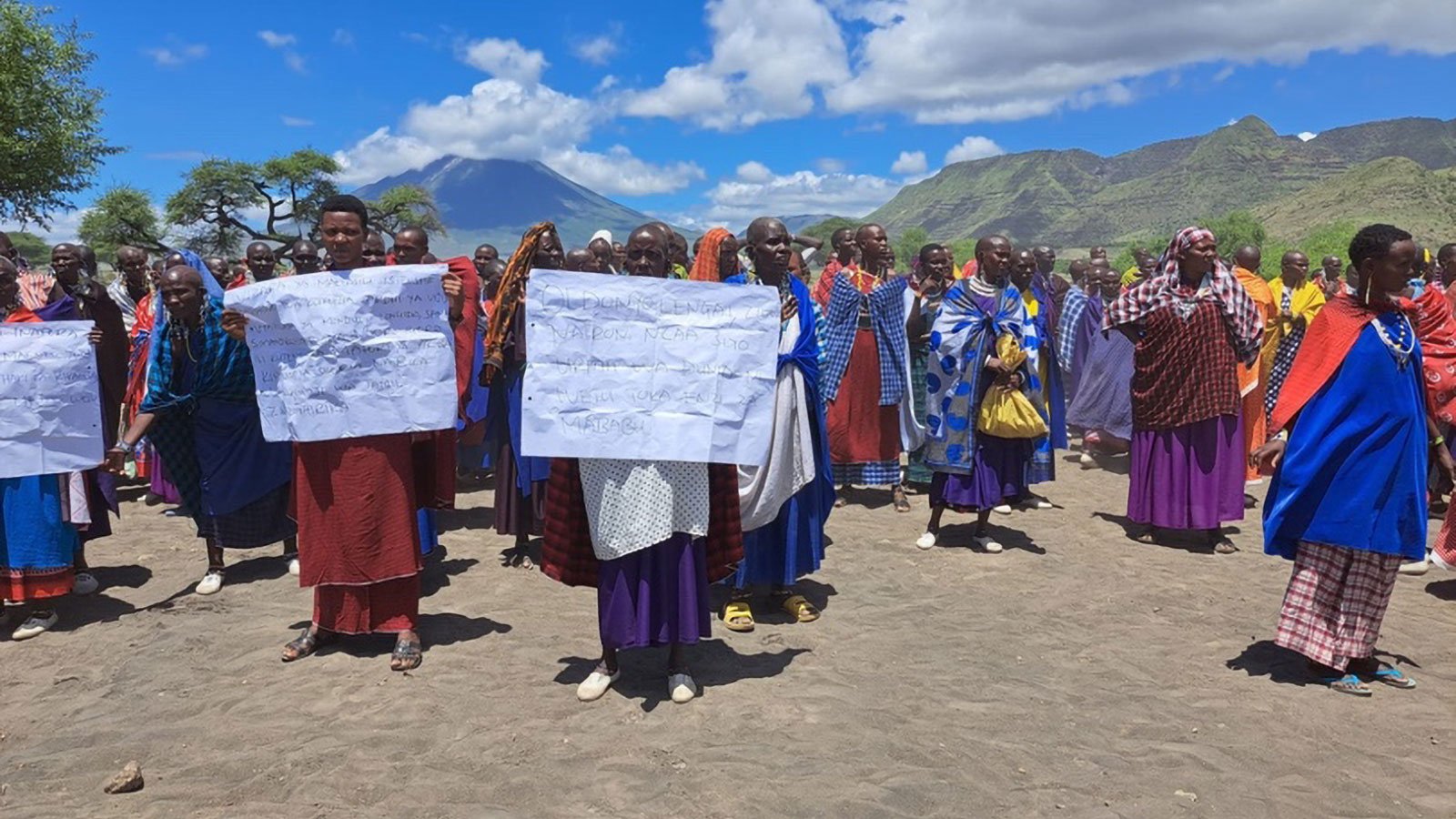
In April 2025, the Indigenous Peoples and Protected Areas Initiative at the University of Arizona’s Indigenous Peoples Law and Policy (IPLP) Program submitted a legal brief to the commissions. Endorsed by the Oakland Institute, Land is Life, and Forest Peoples Programme, the brief called on the Presidential Commissions to uphold the rights of the Maasai to land, culture, self-identification, and Free, Prior and Informed Consent (FPIC) while addressing the devastating impacts that so-called conservation policies have inflicted on these communities. The brief urged the commissions to recognize the Maasai as Indigenous Peoples, guarantee their meaningful participation, and align Tanzania’s laws and policies with its international obligations.
The independence of the commissions remains questionable, with both notably dominated by government personnel and very limited Maasai representation. It is believed that the commissions have already submitted reports, recommending further relocations to the President, who intends to release them after the October general elections.
In a concerning sign, during a July 2025 speech, President Samia Suluhu Hassan condemned the presence of livestock and local communities in the NCA, which she claimed undermines the area’s tourism value. Days after, rangers demolished newly renovated settlements and a church in the Oldupai area, while arresting several Maasai villagers. These actions mark an intensification of efforts to pressure residents into “volunteering” for relocation.
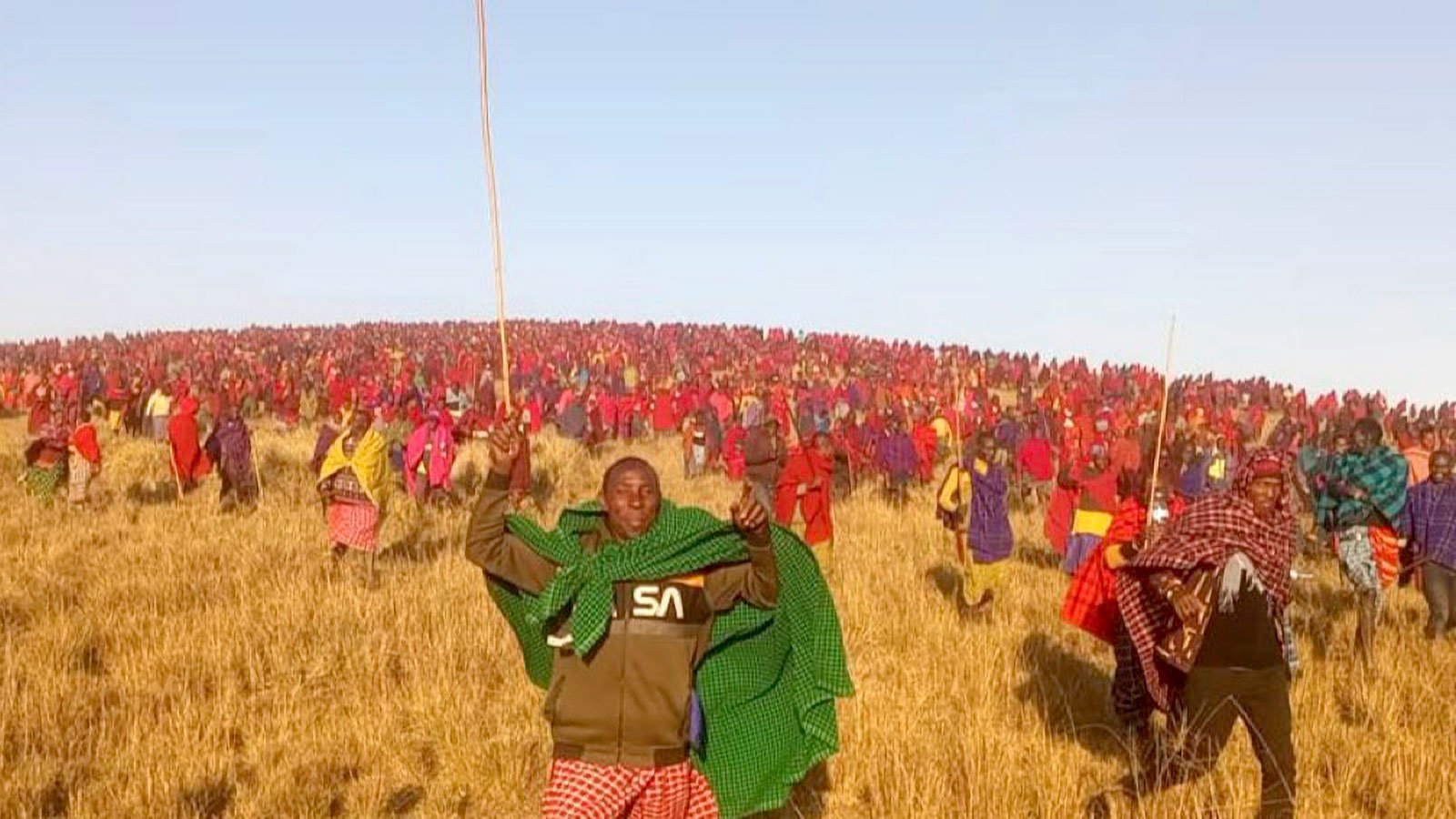
The Oakland Institute has previously shattered state propaganda regarding a better life waiting for those who “volunteer” to resettle in Msomera, documenting how the site – 600 km away – lacks adequate water resources and grazing land while promises of improved social and health services by the government remain unfulfilled.
The NCA was established in 1959 as a multiple land use area that explicitly recognized the Maasai’s settlement rights and authority in governance decisions, while accommodating conservation and tourism. The Maasai were even promised that “should there be any conflict between the interests of the game [animals] and the human inhabitants, those of the latter must take precedence.” It is time that the Tanzanian government keeps its word.
As the environmental stewards of the area, it is imperative that the land rights of the Maasai are restored in compliance with national and international law. The Oakland Institute reiterates the calls made by international law experts to the Presidential Commissions:
- Recognize and protect Maasai land rights, in line with international standards.
- Affirm the role of Indigenous knowledge in conservation, with a focus on Indigenous women and girls.
- Guarantee Free, Prior, and Informed Consent (FPIC) before any conservation initiatives are launched.
- Support sustainable livelihoods rooted in Maasai knowledge, culture, and environmental stewardship.
- Establish ongoing, transparent dialogue between Maasai communities and authorities.
- Promote community-led education and knowledge sharing on conservation.
- Implement U.N. recommendations on halting forced relocations and upholding human rights.
Source: oaklandinstitute.org
Related posts:
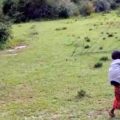
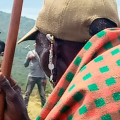 Call to Sever Ties with Tanzanian Government Over Latest Human Rights Abuses Against the Maasai
Call to Sever Ties with Tanzanian Government Over Latest Human Rights Abuses Against the Maasai
 Justice Denied: East African Court of Justice Grants Tanzanian Government Impunity to Trample Human Rights of the Maasai
Justice Denied: East African Court of Justice Grants Tanzanian Government Impunity to Trample Human Rights of the Maasai
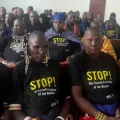 Tanzanian High Court Tramples Rights of Indigenous Maasai Pastoralists to Boost Tourism Revenues
Tanzanian High Court Tramples Rights of Indigenous Maasai Pastoralists to Boost Tourism Revenues

Seed Boot Camp: A struggle to conserve local and indigenous seeds from extinction.

Land Grabbing “matter of growing concern” in Uganda, Catholic Archbishop Laments, Appeals for Intervention

REC25 & EXPO Ends with a call on Uganda to balance conservation and livelihood

StopEACOP Coalition warns TotalEnergies and CNOOC investors of escalating ‘financial and reputational’ Risks

The 4th African Forum on Business and Human Rights: The rapidly escalating investment in Africa is urgently eroding environmental conservation and disregarding the dignity, the land, and human rights of the African people.

Oil palm tree growing in Uganda: The National Oil Palm Project is threatening to evict hundreds of smallholder farmers to expand its operations.

StopEACOP Coalition warns TotalEnergies and CNOOC investors of escalating ‘financial and reputational’ Risks

The 4th African Forum on Business and Human Rights: The African continent is lagging, with only a few member states having adopted the National Action Plan (NAP) on Business and Human Rights.

Innovative Finance from Canada projects positive impact on local communities.
Over 5000 Indigenous Communities evicted in Kiryandongo District
Petition To Land Inquiry Commission Over Human Rights In Kiryandongo District
Invisible victims of Uganda Land Grabs
Resource Center
- REPARATORY AND CLIMATE JUSTICE MUST BE AT THE CORE OF COP30, SAY GLOBAL LEADERS AND MOVEMENTS
- LAND GRABS AT GUNPOINT REPORT IN KIRYANDONGO DISTRICT
- THOSE OIL LIARS! THEY DESTROYED MY BUSINESS!
- RESEARCH BRIEF -TOURISM POTENTIAL OF GREATER MASAKA -MARCH 2025
- The Mouila Declaration of the Informal Alliance against the Expansion of Industrial Monocultures
- FORCED LAND EVICTIONS IN UGANDA TRENDS RIGHTS OF DEFENDERS IMPACT AND CALL FOR ACTION
- 12 KEY DEMANDS FROM CSOS TO WORLD LEADERS AT THE OPENING OF COP16 IN SAUDI ARABIA
- PRESENDIANTIAL DIRECTIVE BANNING ALL LAND EVICTIONS IN UGANDA
Legal Framework
READ BY CATEGORY
Newsletter
Trending
-
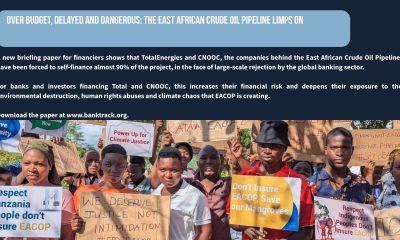
 MEDIA FOR CHANGE NETWORK1 week ago
MEDIA FOR CHANGE NETWORK1 week agoStopEACOP Coalition warns TotalEnergies and CNOOC investors of escalating ‘financial and reputational’ Risks
-

 MEDIA FOR CHANGE NETWORK2 weeks ago
MEDIA FOR CHANGE NETWORK2 weeks agoKnow Your Land rights and environmental protection laws: a case of a refreshed radio program transferring legal knowledge to local and indigenous communities to protect their land and the environment at Witness Radio.
-
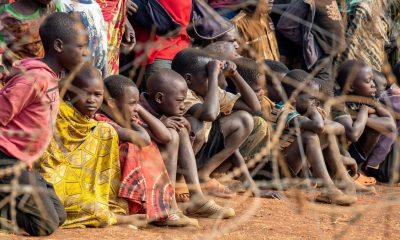
 NGO WORK2 weeks ago
NGO WORK2 weeks agoFailed US-Brokered “Peace” Deal Was Never About Peace in DRC
-
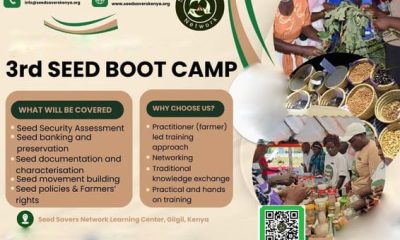
 MEDIA FOR CHANGE NETWORK3 days ago
MEDIA FOR CHANGE NETWORK3 days agoSeed Boot Camp: A struggle to conserve local and indigenous seeds from extinction.
-
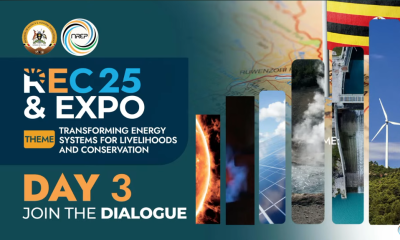
 MEDIA FOR CHANGE NETWORK5 days ago
MEDIA FOR CHANGE NETWORK5 days agoREC25 & EXPO Ends with a call on Uganda to balance conservation and livelihood
-
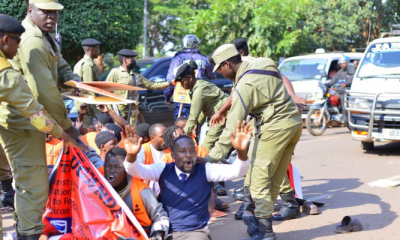
 MEDIA FOR CHANGE NETWORK1 week ago
MEDIA FOR CHANGE NETWORK1 week ago12 anti-Eacop activists decry delayed justice after spending 100 days on remand
-
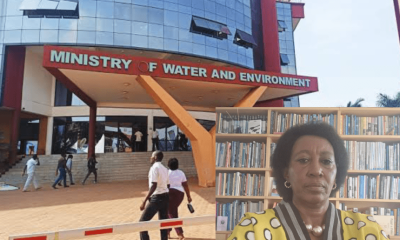
 MEDIA FOR CHANGE NETWORK1 week ago
MEDIA FOR CHANGE NETWORK1 week ago‘They Stole Our Ancestors’: Ministry of Water, RDCs Accused of Land Grabbing and Grave Exhumation in Kanungu
-
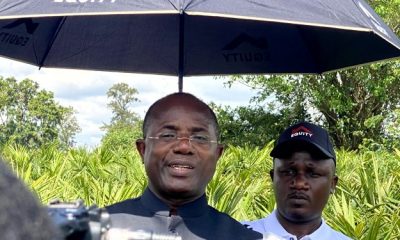
 MEDIA FOR CHANGE NETWORK2 weeks ago
MEDIA FOR CHANGE NETWORK2 weeks agoGov’t Seeks Land to Establish Palm Oil Mill and Nursery in Busoga

